9 Amazing Benefits Of Lilac Essential Oil
Feel refreshed, recharged, and rejuvenated by the hidden benefits of the essential oil!
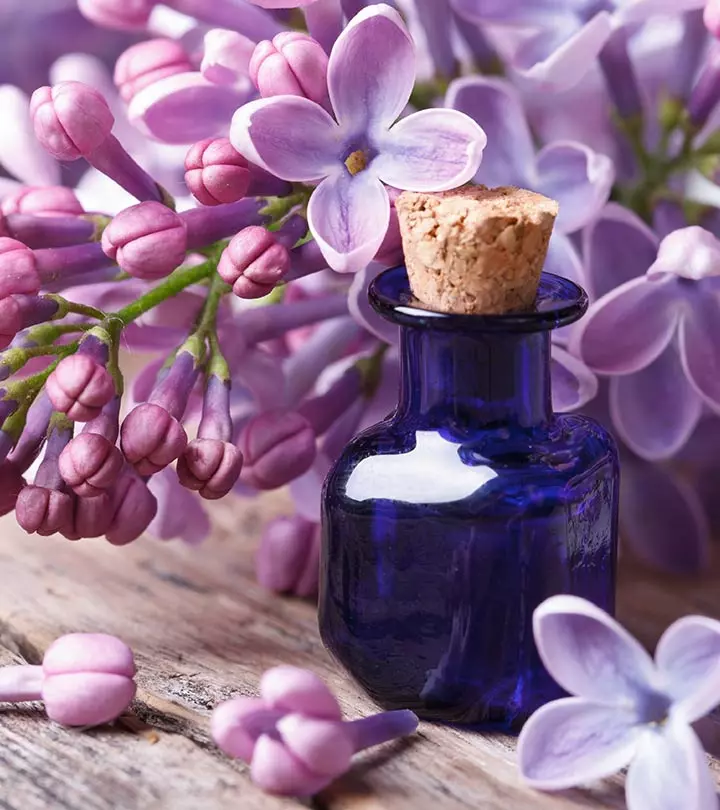
Image: Shutter stock
Lilac essential oil benefits go far beyond their wonderful floral scent. Made from the leaves of the lilac plant, it has been used in Asian cultures for centuries to treat fever, for stress relief, and to improve digestive conditions. This article will explore the different benefits of lilac essential oil and a few tips to keep in mind before using it.
 Know Your Ingredient: Lilac Essential Oil
Know Your Ingredient: Lilac Essential OilWhat Is It?
An extract made from the leaves of the Syringa vulgaris plant.
What Are Its Benefits?
It has antibacterial, antifungal, and skin-healing properties. It also helps relax the mind and spirit.
Who Can Use It?
People who want to promote healthy skin and digestive health and reduce stress and anxiety.
How Often?
It is generally recommended not more than twice a week.
Caution
Avoid taking lilac essential oil orally. Seek medical attention if its application causes allergic reactions on your skin.
In This Article
What Is Lilac Essential Oil?
Lilac essential oil comes from the leaves of the Syringa vulgaris plant. The plant is a native of Eastern Europe and Persia. Lilac essential oil is a steam-distilled extract of the leaves. It is light purple in color and has a refreshing floral scent.
Benefits Of Lilac Essential Oil
1. Vermifuge:

Lilac essential oil is an effective vermifuge, which means that it helps purge your body of intestinal worms. Vermifuges are anthelmintic drugs. Anthelmintic drugs typically stun or kill intestinal worms and other parasites without harming your body. They are either vermifuges (parasite-stunners) or vermicides (parasite killers).
2. Antifungal:

Lilac essential oil has potent antifungal properties that make it an effective agent for eliminating fungi from your body and helps lower the risk of fungal infections (1).
3. Astringent:
Lilac essential oil has potential benefits for your skin. It has proven astringent properties, which make it an effective skin tightening agent and toner. The topical application of the oil helps reduce age lines and wrinkles. Lilac oil may help reduce skin sagging as well (2).
4. Febrifuge:

Lilac essential oil is an effective febrifuge. A febrifuge is an agent that helps reduce fever and provides comfort from its effects (3).
 Quick Tip
Quick Tip5. Eases Anxiety:

Lilac essential oil has a characteristically sweet fragrance. It exudes a soothing effect and makes an excellent essential oil for anxiety. In fact, many aromatherapists use lilac essential oil for their clients’ relaxation. It is a potent mood enhancer.
6. Treats Skin Problems:
Lilac essential oil has many therapeutic benefits.
According to anecdotal evidence it has anti-inflammatory and antiseptic properties that help treat skin problems like cuts, rashes and burns. In fact, the oil is also a natural remedy for sunburn. Lilac essential oil promotes glowing and healthy skin and can be included in skin care for all skin types as a massage oil .
7. Possible Psychic Effects:
Lilac essential oil has a hidden health benefit. It may boost your psychic abilities, which include a wider sense of perception of the spirit world. It is an ethereal experience (4).
8. Antibacterial:
Lilac essential oil is a strong antibacterial agent, and it smells divine. These properties make it an ideal sterilizing agent that not only eliminates infection-inducing bacteria, but also leaves your home smelling wonderful.
9. Anti- Aging
The presence of the compound verbascoside in lilac may protect the skin against UV radiation. If lilac essential oil is applied just before sun exposure, it may help reduce inflammation and inhibit the activity of certain molecules that promote inflammation (5).
However, the effectiveness of lilac essential oil in reversing aging signs like wrinkles, fine lines, or age spots is largely anecdotal. It is believed that the antioxidant properties in lila essential oil may boost elasticity and improve the appearance of wrinkles and fine lines. However, studies are warranted to prove that lilac essential oil may help reverse premature aging.
Lilac essential oil blends well with freesia, lily and lavender essential oils.
 Quick Tip
Quick TipA Word Of Caution

Lilac essential oil is a concentrated essence, extracted through steam distillation. It has many holistic health benefits, but it can lead to possible side effects. Here we list some cautions before you begin to use the oil.
- You should not consume lilac essential oil at all.
- If you are pregnant or nursing, avoid contact with lilac essential oil.
- If you have hyper-sensitive skin, lilac essential oil may trigger skin infections.
- Mix the lilac essential oil with a carrier oil and apply a few drops of the solution to a small area and see if your skin develops an infection or reacts to the lilac oil.
- Sometimes, lilac essential oil can turn red, be very itchy, and you may even develop hives or a rash.
- If you experience any of the above symptoms, discontinue using lilac essential oil and seek immediate medical attention to reduce future complications.
- Remember to consult a doctor before you begin using lilac essential oil.
Infographic: 5 Must-Know Benefits Of Lilac Essential Oil
Lilac has a sweet and pleasant fragrance, and its essential oil is widely used in aromatherapy for its stress-relieving and mood-enhancing effects. However, this healing oil is a potent antifungal agent and has several other health benefits. The infographic below highlights why this amazing oil deserves a place in your daily routine. Scroll down and check it out!

Illustration: StyleCraze Design Team
Lilac essential oil has a floral perfume that is highly regarded. Apart from aromatherapy, its nutrient profile also promotes health and wellness. The benefits of lilac essential oil include reduced fever and anxiety. This natural antifungal, antibacterial oil also has the potential to rejuvenate your skin. The essential oil may also serve as an anti-helminthic agent. However, excess use may cause skin issues. Consult your doctor if you experience any adverse effects.
Frequently Asked Questions
What blends well with lilac essential oil?
Lily, lavender, frankincense, jasmine, and neroli oils blend well with lilac essential oil.
Is lilac oil and lavender oil the same?
No. Lilac oil and lavender oil are not the same. Lavender oil has a fresh and light fragrance, while lilac oil has a strong fragrance.
Is lilac oil good for your hair?
The antifungal and astringent properties of lilac make it a good toner for the scalp and hair.
Key Takeaways
- Lilac essential oil, extracted from the leaves of the lilac plant, may treat fever and reduce anxiety.
- It may help kill intestinal worms and treat many digestive issues as it is an effective vermifuge.
- Lilac essential oil may help reduce wrinkles as it has astringent properties.
- Lilac essential oil must be diluted with a carrier oil before use and used carefully, as it may cause skin irritation in some individuals.
Illustration: Amazing Benefits Of Lilac Essential Oil
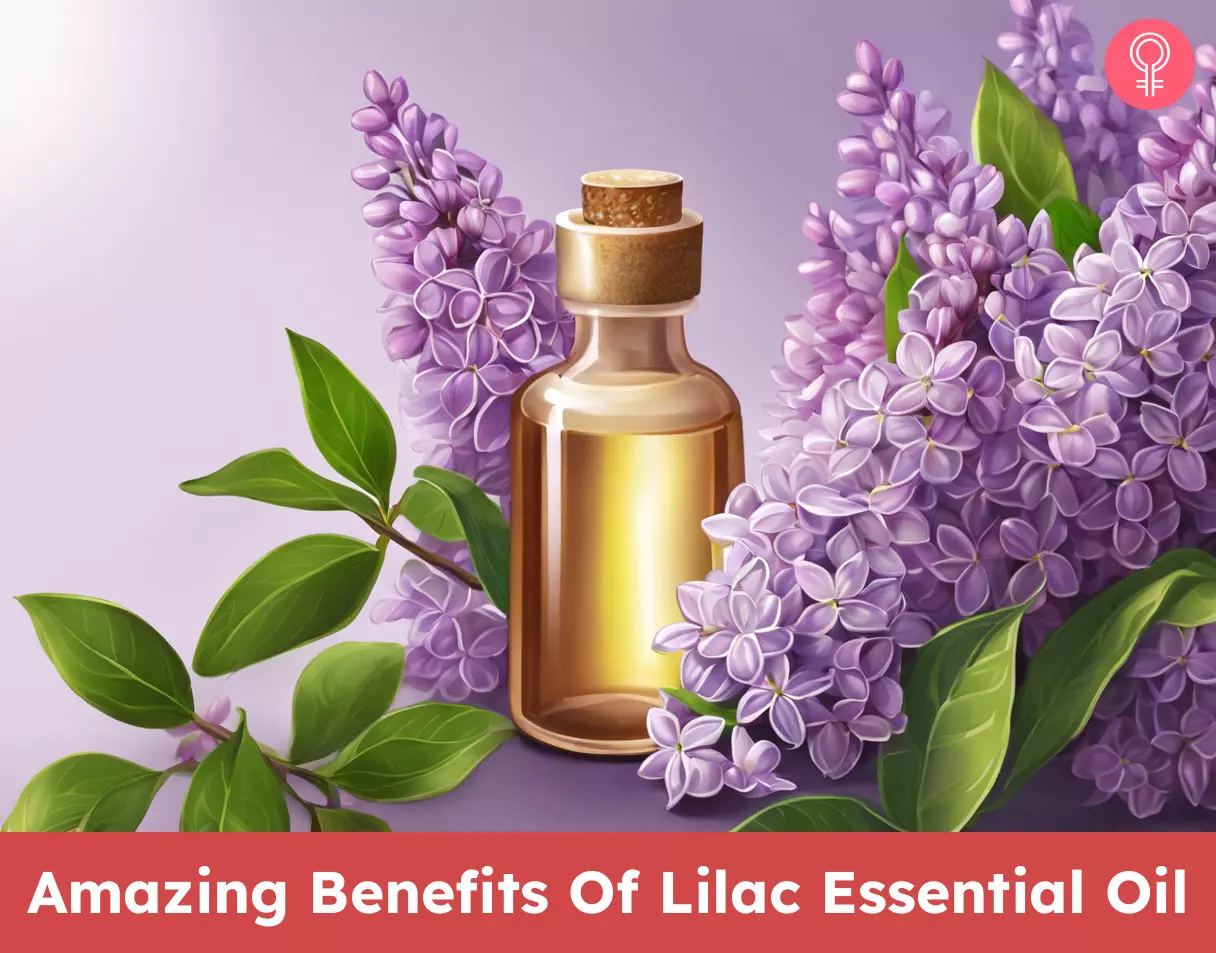
Image: Stable Diffusion/StyleCraze Design Team
Discover the amazing health benefits, uses, and side effects of lilac essential oil. Learn how to use it safely and effectively for your health and well-being with the video below. Check it out today!
Read full bio of Dr. Pallavi Srivastava
Read full bio of Ravi Teja Tadimalla
Read full bio of Himanshi Mahajan





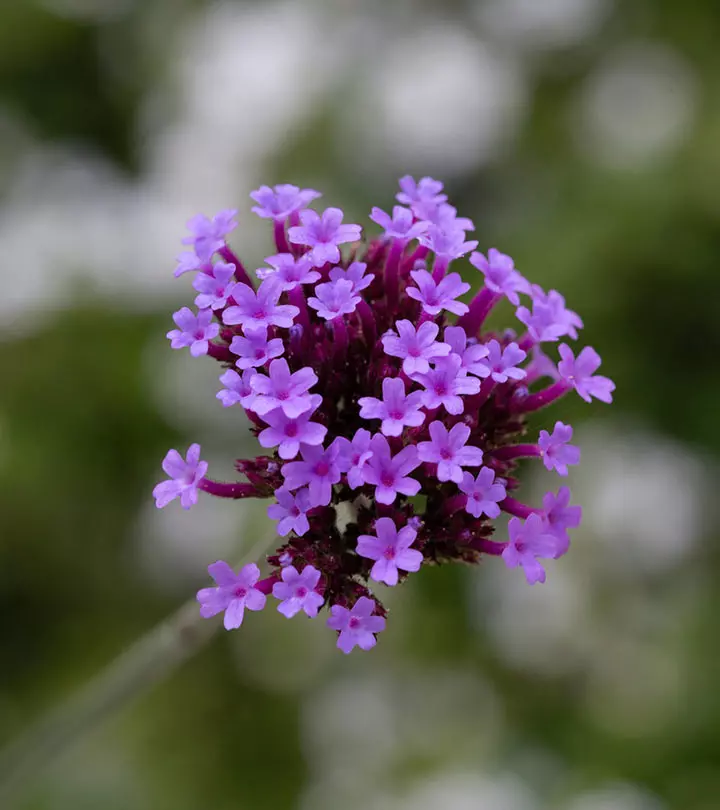
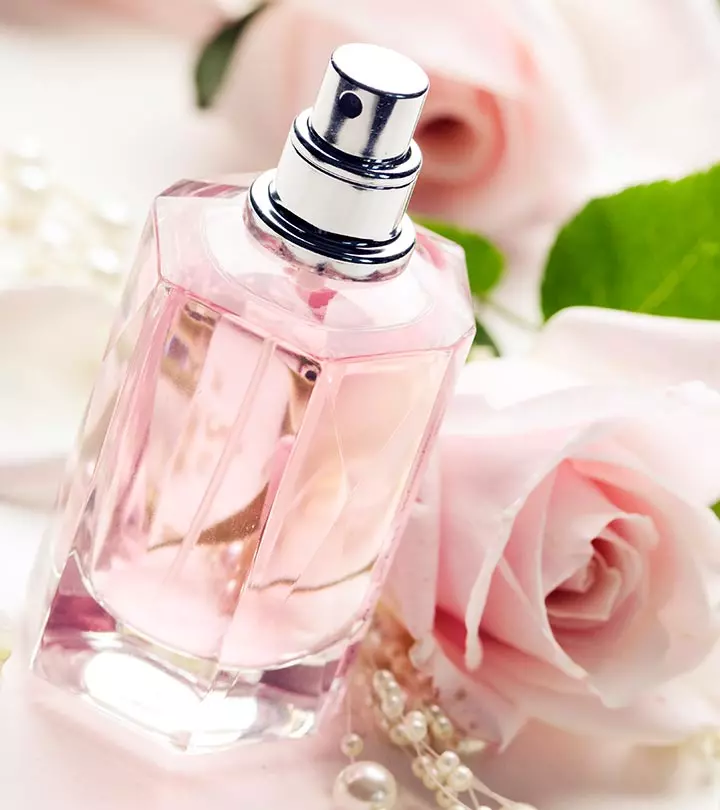

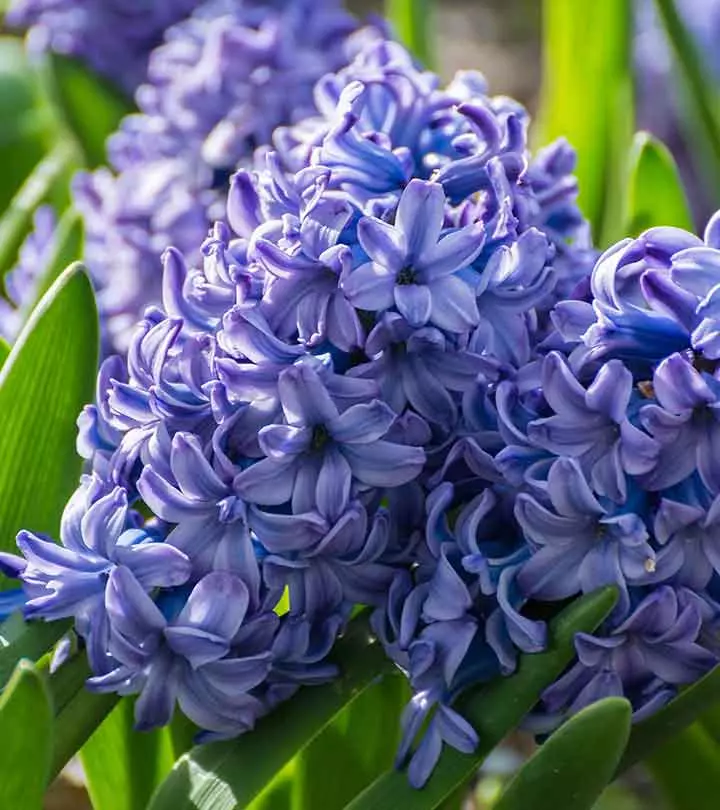
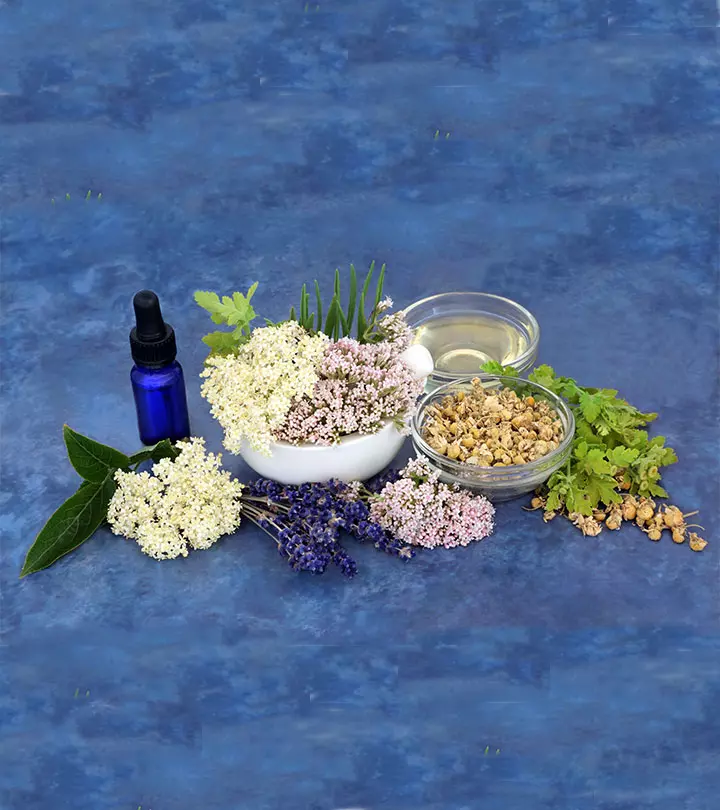
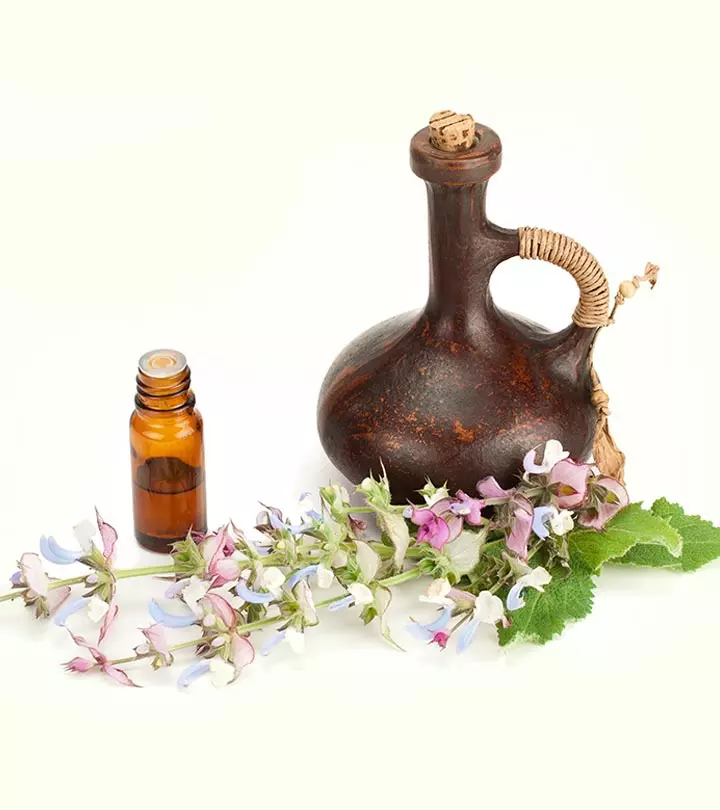

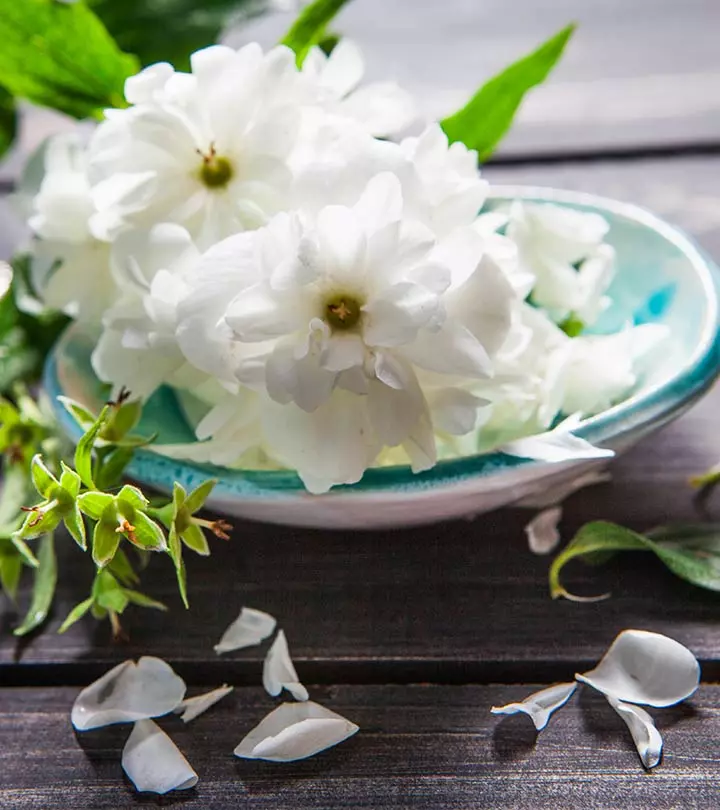
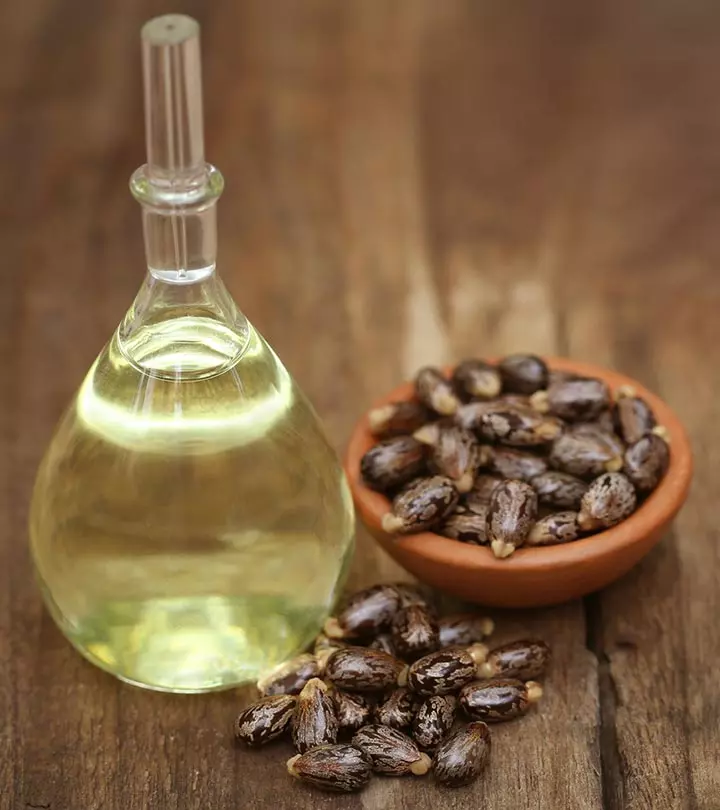
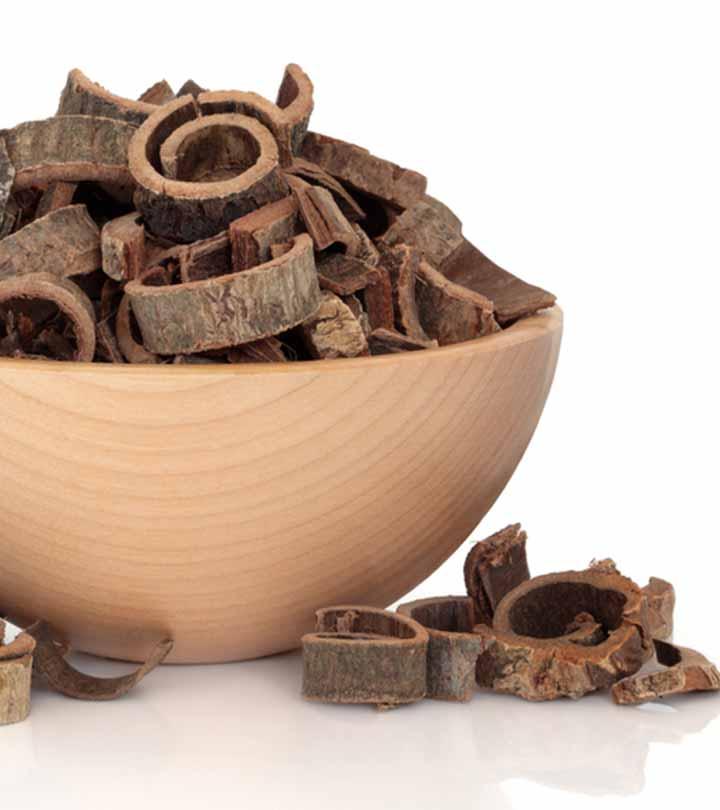





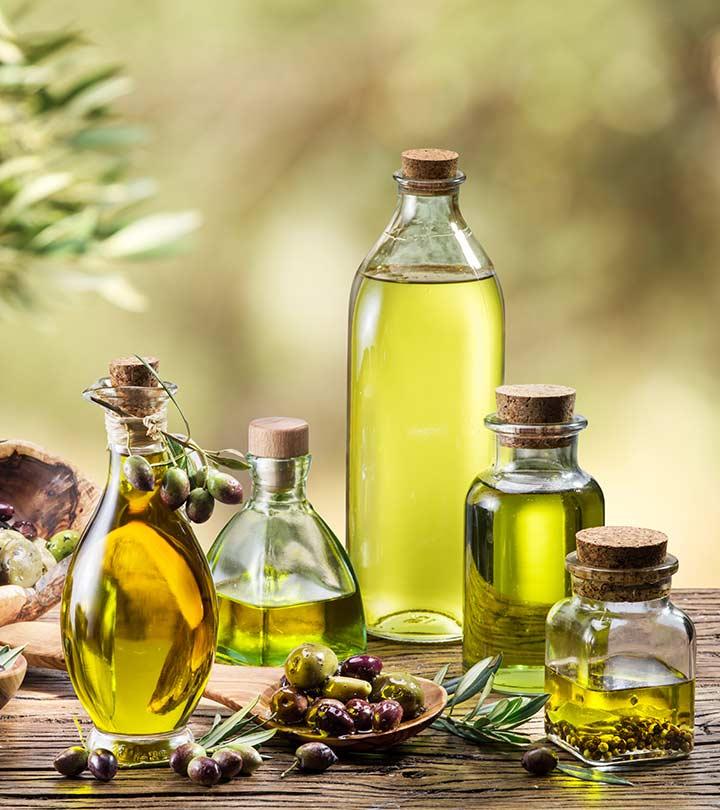





Community Experiences
Join the conversation and become a part of our empowering community! Share your stories, experiences, and insights to connect with other beauty, lifestyle, and health enthusiasts.